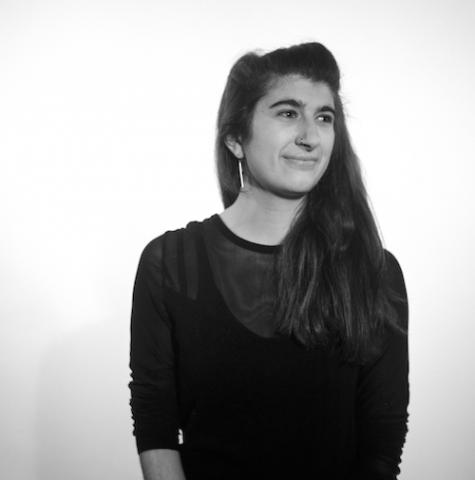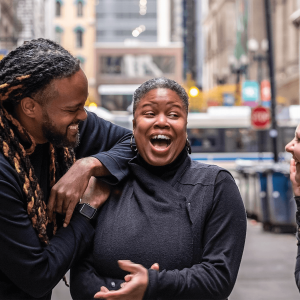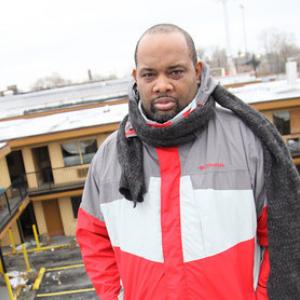
Ariel Parrella-Aureli is a freelance journalist in Chicago covering LGBTQ issues, social justice, politics, arts, culture and food. Her work appears in Block Club Chicago, the Windy City Times, Chicago Reader, Psymposia magazine, and more.
Posts By This Author
This Worship Band Sings About Police Brutality.
And LGBTQ inequality, immigration, and other topics not usually mentioned in church.
AT THE TIME most people head home after a typical workday, four musicians are just getting started. In a living room filled with holiday decorations and religious artwork, with inspirational phrases on the walls and bookshelves, Darren Calhoun, Leslie Michelle, Hannah Rand, and Gary Rand are rehearsing.
Together, with Leonora Rand, they are The Many, a Chicago-based, social justice-focused worship band that pulls from gospel and indie pop to sing about topics not usually mentioned in worship music or church. Their songs touch on police brutality, LGBTQ and immigrant inequalities, economic hardship, identity and uncertainty about faith and God, and doubt and justice amid violence.
“We were trying to find some songs that could give honest voice to our congregation, to what we were dealing with,” says producer Gary Rand, a longtime musician and former director of worship at LaSalle Street Church in Chicago, as well as former director of worship and adjunct professor at McCormick Theological Seminary for 20 years. He says the band always felt a need for this kind of music, but once the group solidified in 2016 with its current members, its mission of speaking truth with a social justice lens to community issues took off.
How Islamophobia Today Can Be Traced To The Past
An Interview with Nazia Kazi
Nazia Kazi knows her history well: A Ph.D. in anthropology, she teaches courses on race, ethnicity, immigration, and Islam in the U.S. at Stockton University in Philadelphia. Kazi’s new book, Islamophobia, Race, and Global Politics, released Dec. 12 from Rowman & Littlefield, discusses the scope of Islamophobia in the U.S. from the country’s historical and political roots. Drawing on examples such as the legacy of Barack Obama, the mainstream media’s portrayal of Muslims, and the justifications given for some of America’s most recent military endeavors, Kazi highlights the vast impact of Islamophobia, connecting this to a long history of U.S. racism.
A South Side Chicago Pastor's Plan to Fight Violence and Poverty in His Community
In 2012, Pastor Corey Brooks spent 94 days living on a motel roof. He only came down for two funerals, which happen often in his community. He was protesting the motel owners, who were involved in local sex trafficking and gang violence that had a stronghold on his South Side Chicago community. Brooks’ goal was to convince the owners to sell the property and end the illicit activities. Eventually they caved, and Brooks was able to buy the lot with help from actor and filmmaker Tyler Perry and Ozinga Concrete, one of the longest-serving family businesses in Chicagoland.


